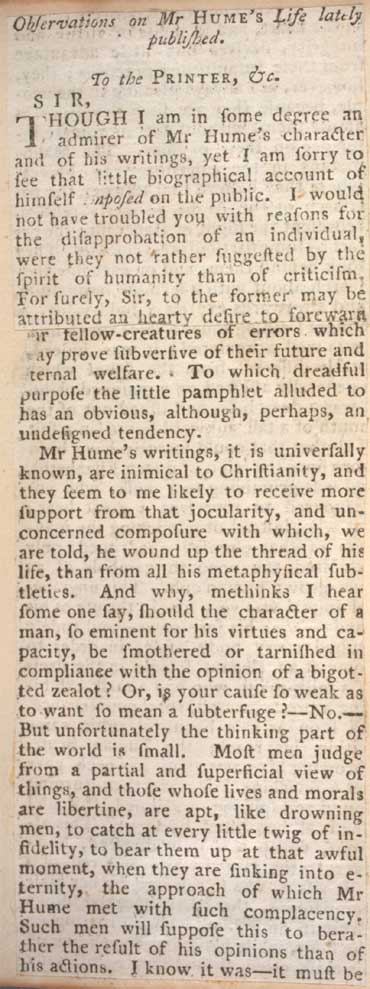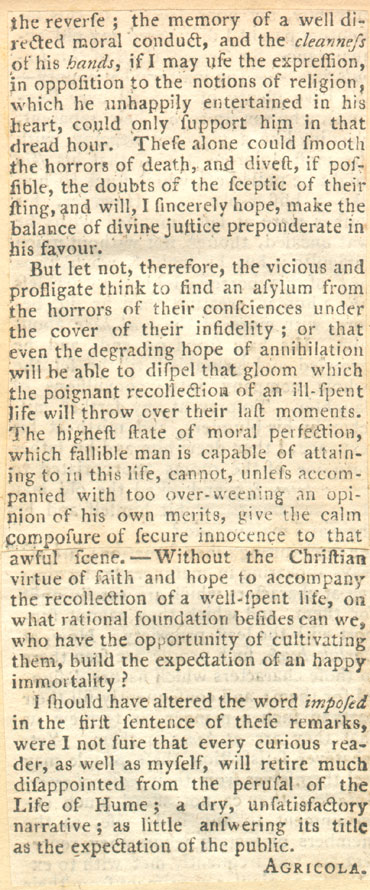Contemporary and Historical Comments
|
Observations on Mr HUME's Life To the PRINTER, &C. SIR, Mr. Hume's writings, it is universally known, are inimical to Christianity, and they seem to me likely to receive more support from that jocularity, and unconcerned composure with which, we are told, he wound up the thread of his life, than from all his metaphysical subtleties. And why, methinks I hear some say, should the character of a man, so eminent for his virtues and capacity, be smothered or tarnished in compliance with the opinion of a bigoted zealot? Or, is your cause so weak as to want so mean a subterfuge? - No. - But unfortunately, the thinking part of the world is small. Most men judge from a partial and superficial view of things, and those whose lives and morals are libertine, are apt, like drowning men, to catch at every twig of infidelity, to bear them up at that awful moment, when they are sinking into eternity, the approach of which Mr. Hume met with such complacency. Such men suppose this to be rather the result of his opinions than of his actions. I know it was - it must be the reverse; the memory of well directed moral conduct, and the cleanness of his hands, if I may use the expression, in opposition to the notions of religion, which he unhappily entertained in his heart, could only support him in that dread hour. These alone could smooth the horrors of death, and divest, if possible, the doubts of the sceptic of their sting, and will, I sincerely hope, make the balance of divine justice preponderate in his favour. But let not, therefore, the vicious and profligate think to find an asylum from the horrors of their conscience under the cover of their infidelity; or that even the degrading hope of annihilation will be able to dispel the gloom which the poignant recollection of an ill-spent life will throw over their last moments. The highest state of moral perfection, which fallible man is capable of attaining to in this life, cannot, unless accompanied with too over-weening an opinion of his own merits, give the calm composure of secure innocence to that awful scene. - Without the Christian virtue of faith and hope to accompany the recollection of a well-spent life, on what rational foundation besides can we, who the opportunity of cultivating them, build the expectation of an happy immortality? I should have altered the word imposed in the first sentence of these remarks, were I not sure that every curious reader, as well as myself, will retire much disappointed from the perusal of the Life of Hume; a dry, unsatisfactory narrative; as little answering its title as the expectation of the public.
* * * * * * * * * * * * * * |



